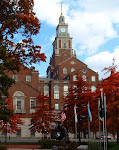Alleged ring was based in Colombia, US attorney says
After a trail of cash led federal investigators from Boston to Colombia in a five-year investigation, eight men were arrested, five of whom were arraigned in Boston yesterday afternoon on drug trafficking charges.
The investigation began in 2005, when federal investigators discovered that drug money was being delivered to Boston, where it would land in the hands of professional money launderers before working its way back to drug dealers in Colombia.
It is unusual for Latin American drug traffickers to be extradited and tried in Boston, as the city is not a typical port of entry used by international narcotic traffickers. But the Hub has just as much of a stake in stopping the flow of drugs as any other US city, US District Attorney Carmen Ortiz, the top federal prosecutor for Massachusetts, said at a news conference in Boston yesterday.
“It shows that Boston is not just some tiny town that does not care about solving the national and international problem of drug trafficking,’’ he said. “We’re going to play a role in it.’’
To trace the money, federal agents posed as money launderers and were hired to handle some of the drug ring’s cash. Over the past several years, investigators used the money trail to find where cocaine was arriving in the United States. They also tracked cocaine traffic in Colombia.
“What is unique about this case is that we normally follow the drug trail to the money,’’ Ortiz said. “In this case, the exact opposite was true.’’
Federal investigators coordinated multiple “money pickups’’ in which they would receive money from drug traffickers and then wire it through “undercover bank accounts,’’ or occasionally the black market, back to ac counts controlled by the drug cartel.
During the five-year probe, which became known as Operation Beanpot, officials said investigators seized 2,900 kilograms of cocaine worth at least $100 million in the United States.
The drug traffickers used Filipino Merchant Marines working on commercial vessels to ship the narcotics out of Colombia and into the United States. The cocaine taken to the United States mostly went through ports of entry in New Orleans and Miami, according to an affidavit filed in federal court.
It is unknown whether any drugs trafficked by the suspects ever landed in Boston. But Ortiz said the international drug trade affects Boston.
“People in our city die and get hurt, and neighborhoods get harmed, by these drugs,’’ Ortiz said. “If we can play a role in keeping those drugs from leaving Colombia and entering Boston . . . then we are playing a massive role.’’
The five men who appeared in court yesterday were identified as Leyvan Alvarez-Bastidas, 39, who is also known as “Ivan,’’ Hector Javier Castro-Meza, 47, known as “Pepe,’’ Gustavo Castro-Caicedo, 50, known as “Luis Amaro,’’ Fidel Alberto Ruales-Vallijo, 36, known as “Cui,’’ and May Adolfo Morcillo-Molina, 29, known as “May.’’
Yesterday afternoon, the five men were led into the US District Court in Boston with their hands and feet shackled, heads down and faces drawn.
Being held by Colombian authorities are Luis Alberto Zapata-Sanchez, 43, known as “El Negro,’’ Bernardo Alberto Merino-Cuaran, 27, known as “Gaviota,’’ and Alex Castro-Cortes, 34, known as “Ali.’’ They may also be brought to Boston pending approval by the Colombian president.
Federal officials would not say whether any of the defendants were suspected to have ties to the Revolutionary Armed Forces of Colombia, a guerrilla army better known as FARC that has been linked to numerous acts of violence, kidnapping, and participation in the illegal drug trade.
The United States has charged all of the men with the same charges: violating the US Code on multiple drug-related counts. These charges carry a maximum sentence of life in prison with supervised releases and a $4 million fine, said Assistant US Attorney Zachary R. Hafer, who served as the prosecutor in yesterday’s arraignment.
All five of the men pleaded “not guilty’’ and accepted voluntary detention, meaning they will be held by the US Marshal until their next appearance in court, set for Sept. 15.
While defense attorneys in the case declined to comment yesterday, court officials said that the United States would be ready to bring as many as 15 witnesses to testify if the case were to go to trial.
Federal investigators said unlike other drug extradition cases, this time, undercover agents were able to successfully identify and apprehend members of the cartel from the top (Alvarez-Bastidas was identified as the group leader) to the bottom (individuals who transported small amounts of cocaine into the United States on buses and trucks).
The investigation was conducted by special agents from the US Drug Enforcement Administration and criminal investigators from the Internal Revenue Service, officials said. Investigators from Colombia’s Administrative Department of Security, the Colombian equivalent of the FBI, also participated.
“International borders offer no security to drug traffickers who seek to flood our communities with tons of cocaine and launder the proceeds as alleged in this indictment,’’ Steven M. Derr, the DEA’s special agent-in-charge, said in a statement. “Traffickers will not escape the grasp of law enforcement professionals who have dedicated themselves to putting these criminal groups out of business.’’
Marissa Lang can be reached at mlang@globe.com.
